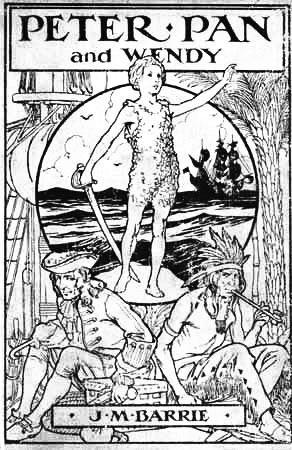Puer aeternus
Puer Aeternus[edit | edit source]
The term puer aeternus is a Latin phrase that translates to "eternal boy." It is used in psychology to describe an individual, typically a male, who remains emotionally and psychologically immature. The concept is often associated with the archetype of the "eternal child," which is prevalent in mythology and literature.
Origins and Development[edit | edit source]
The concept of the puer aeternus was popularized by Carl Jung, a Swiss psychiatrist and psychoanalyst who founded analytical psychology. Jung used the term to describe a certain type of personality that is characterized by a refusal to grow up and take on adult responsibilities. This archetype is often depicted in myths and stories as a young god or hero who never ages.
Characteristics[edit | edit source]
Individuals who embody the puer aeternus archetype often exhibit traits such as:
- A desire for freedom and avoidance of commitment.
- A tendency to be idealistic and romantic.
- Difficulty in maintaining relationships and careers.
- A sense of entitlement and narcissism.
Cultural Representations[edit | edit source]
The puer aeternus archetype is famously represented by the character Peter Pan, created by J.M. Barrie. Peter Pan is a boy who never grows up and lives in the magical world of Neverland. This character embodies the essence of the puer aeternus by refusing to accept the responsibilities of adulthood.
Other examples in literature and film include characters who are perpetually youthful and resist the passage of time, often at the cost of personal growth and development.
Psychological Implications[edit | edit source]
In psychotherapy, the puer aeternus can be a significant focus of treatment. Individuals who identify with this archetype may struggle with depression, anxiety, and identity issues. Therapy often involves helping these individuals to confront their fears of growing up and to develop a more mature and integrated sense of self.
Related Pages[edit | edit source]
Search WikiMD
Ad.Tired of being Overweight? Try W8MD's physician weight loss program.
Semaglutide (Ozempic / Wegovy and Tirzepatide (Mounjaro / Zepbound) available.
Advertise on WikiMD
|
WikiMD's Wellness Encyclopedia |
| Let Food Be Thy Medicine Medicine Thy Food - Hippocrates |
Translate this page: - East Asian
中文,
日本,
한국어,
South Asian
हिन्दी,
தமிழ்,
తెలుగు,
Urdu,
ಕನ್ನಡ,
Southeast Asian
Indonesian,
Vietnamese,
Thai,
မြန်မာဘာသာ,
বাংলা
European
español,
Deutsch,
français,
Greek,
português do Brasil,
polski,
română,
русский,
Nederlands,
norsk,
svenska,
suomi,
Italian
Middle Eastern & African
عربى,
Turkish,
Persian,
Hebrew,
Afrikaans,
isiZulu,
Kiswahili,
Other
Bulgarian,
Hungarian,
Czech,
Swedish,
മലയാളം,
मराठी,
ਪੰਜਾਬੀ,
ગુજરાતી,
Portuguese,
Ukrainian
Medical Disclaimer: WikiMD is not a substitute for professional medical advice. The information on WikiMD is provided as an information resource only, may be incorrect, outdated or misleading, and is not to be used or relied on for any diagnostic or treatment purposes. Please consult your health care provider before making any healthcare decisions or for guidance about a specific medical condition. WikiMD expressly disclaims responsibility, and shall have no liability, for any damages, loss, injury, or liability whatsoever suffered as a result of your reliance on the information contained in this site. By visiting this site you agree to the foregoing terms and conditions, which may from time to time be changed or supplemented by WikiMD. If you do not agree to the foregoing terms and conditions, you should not enter or use this site. See full disclaimer.
Credits:Most images are courtesy of Wikimedia commons, and templates, categories Wikipedia, licensed under CC BY SA or similar.
Contributors: Prab R. Tumpati, MD

